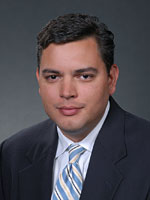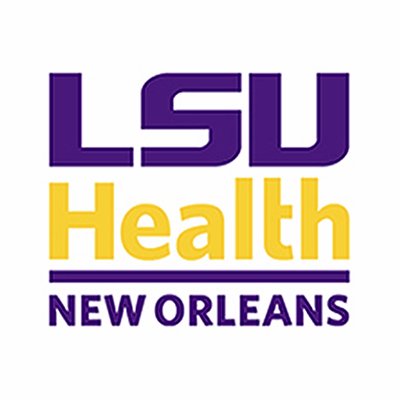As a part of ongoing discussions on the rise of gun violence as it relates to health, both mentally and physically, Dr. Erich Conrad, MD, FACLP, discussed the effects traumatic injuries caused by gun violence can have on individuals and communities.
 Dr Erich Conrad, Prof Psychiatry, LSUHe says recovery services are needed for not only the patient but the community that experienced the traumatic events as well.
Dr Erich Conrad, Prof Psychiatry, LSUHe says recovery services are needed for not only the patient but the community that experienced the traumatic events as well.
Dr. Conrad, a native of New Orleans who is a proud LSU graduate who also attended medical school at LSUHSC and completed his residency there as well is now the Vice Chairman for Hospital Psychiatry and oversees the new outpatient psychiatric center. This center has a general psychiatry clinic, an addiction psychiatry clinic, the general intensive outpatient program, addiction intensive outpatient program, as well as integrated clinics.
A crucial service offered within the hospital is the Acute Trauma Recovery Clinic, which sees patients after traumatic events—such as gun violence or a car accident. Best said by Dr. Conrad, “It is basically having psychiatry and psychology and social work embedded within the trauma surgery clinic, and then specializing in treating patients that have been injured. Upon admission this will trigger a trauma activation. Hence on the trauma surgery admission orders, it is an automatic check box to consult trauma psychology. Trauma psychology task is to around and screen all the trauma surgery patients—for depression, PTSD symptoms, substance abuse problems, and then the potential for violence to themselves if they were a victim of violence, and anything else that comes up with any of the screeners.”
While this system of screening and taking care of patients may seem commonplace, Dr. Conrad explains that it is actually unique and rare. “It is now a requirement for level one trauma centers to do some sort of screening, but it is often carried out by like the nurse on the floor. So having the expertise at the bedside immediately following some sort of accident like that, and then also being able to follow up in a specialized clinic embedded within the trauma surgery play—it is actually very rare. Iam only aware of a handful of other hospitals that have a similar setup.”
Now more than ever, services provided at centers like the Acute Trauma Recovery Center are necessary. Since the onset of the COVID-19 pandemic, there has been a 10–30% increase in trauma activations at University Medical Center, New Orleans (UMCNO), depending on the month. Dr. Conrad says in March of 2022 alone, there were 448 trauma activations.
To learn more about the importance of trauma recovery services after individuals experience traumatic injuries, such as a gunshot, to help prevent acute post-traumatic stress and other mental health conditions that arise from these situations, listen to the full interview with Dr. Kendra Outler, MD from Uzima Health and Wellness and Dr. Erich Conrad, MD, FACLP, sponsored by the LSUHSC Department of Psychiatry.
 Dr Erich Conrad is a Professor of Psychiatry at the Louisiana State University Health Sciences Center (LSUHSC), the Vice Chairman for Hospital Psychiatry, Program Director for the LSU-Ochsner Consultation-Liaison Fellowship, and Service Line Director for Behavioral Health at the University Medical Center, New Orleans (UMCNO), PTSD and acute trauma disorders are the most psychiatric disorders.
Dr Erich Conrad is a Professor of Psychiatry at the Louisiana State University Health Sciences Center (LSUHSC), the Vice Chairman for Hospital Psychiatry, Program Director for the LSU-Ochsner Consultation-Liaison Fellowship, and Service Line Director for Behavioral Health at the University Medical Center, New Orleans (UMCNO), PTSD and acute trauma disorders are the most psychiatric disorders.